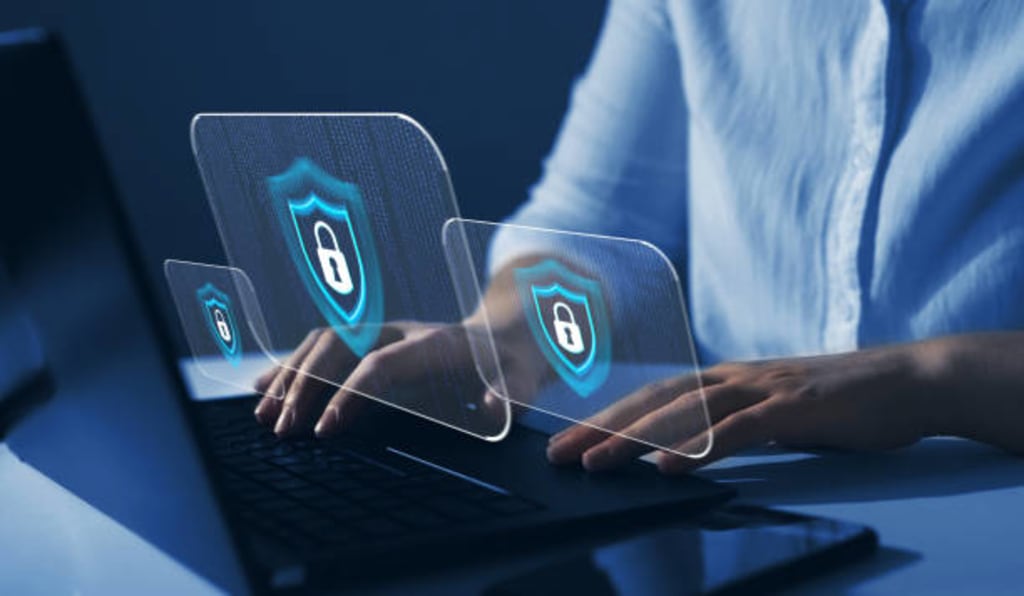Ensuring Internet Safety:
Protecting Yourself in the Digital Age

The internet has revolutionized the way we connect, communicate, and access information. However, as we navigate the vast online world, it's essential to prioritize internet safety. With the increasing prevalence of cyber threats and risks, safeguarding our personal information, privacy, and online well-being is crucial. In this article, we explore key practices and tips to help you stay safe and secure in the digital age.
Strong Passwords and Secure Accounts:
Creating strong and unique passwords is the first line of defense against unauthorized access to your online accounts. Use a combination of upper and lowercase letters, numbers, and special characters. Avoid using easily guessable information such as birthdays or names. Additionally, enable two-factor authentication whenever possible, which adds an extra layer of security by requiring a verification code in addition to your password.
Privacy Settings and Sharing Personal Information:
Be mindful of the information you share online. Review and adjust privacy settings on social media platforms and other online accounts to control who can view your personal information. Avoid sharing sensitive data, such as your home address, phone number, or financial details, unless it's necessary and with trusted sources. Be cautious when posting photos or personal updates, as they can be used to gather information about you.
Phishing Awareness and Suspicious Links:
Phishing scams are prevalent online, with cybercriminals attempting to trick users into revealing sensitive information or downloading malware. Be wary of emails, messages, or links from unknown sources. Avoid clicking on suspicious links or providing personal information in response to unsolicited requests. Verify the legitimacy of websites and sources before providing any sensitive information.
Safe Browsing Habits:
Practice safe browsing habits by being cautious of the websites you visit. Stick to reputable and trusted websites, particularly when handling financial transactions or sharing personal information. Keep your web browser and antivirus software up to date to protect against known vulnerabilities and malware. Avoid downloading files from unverified sources and exercise caution when clicking on ads or pop-ups.
Social Media Awareness:
Social media platforms have become integral to our online lives, but it's essential to be mindful of the information we share and the connections we make. Regularly review your privacy settings on social media platforms and be selective about the content you share publicly. Be cautious when accepting friend requests or connecting with unknown individuals. Remember that once something is posted online, it can be challenging to completely remove it from the internet.
Educate Yourself and Stay Informed:
Stay informed about the latest internet threats, scams, and security best practices. Regularly update your knowledge on internet safety through reputable sources. Educate yourself about common tactics used by cybercriminals, such as phishing, ransomware, and identity theft, so you can identify and avoid potential risks.
Conclusion:
Internet safety is a shared responsibility, and by adopting proactive measures and cultivating safe online habits, we can protect ourselves and our digital identities. Practicing strong password hygiene, managing privacy settings, being cautious of suspicious links, practicing safe browsing habits, and staying informed about the latest threats are essential steps towards ensuring internet safety. By staying vigilant and mindful of our online actions, we can navigate the digital world with confidence, security, and peace of mind.
Creating strong and unique passwords is the first line of defense against unauthorized access to your online accounts. Use a combination of upper and lowercase letters, numbers, and special characters. Avoid using easily guessable information such as birthdays or names. Additionally, enable two-factor authentication whenever possible, which adds an extra layer of security by requiring a verification code in addition to your password.
Privacy Settings and Sharing Personal Information:
Be mindful of the information you share online. Review and adjust privacy settings on social media platforms and other online accounts to control who can view your personal information. Avoid sharing sensitive data, such as your home address, phone number, or financial details, unless it's necessary and with trusted sources. Be cautious when posting photos or personal updates, as they can be used to gather information about you.
Phishing Awareness and Suspicious Links:
Phishing scams are prevalent online, with cybercriminals attempting to trick users into revealing sensitive information or downloading malware. Be wary of emails, messages, or links from unknown sources. Avoid clicking on suspicious links or providing personal information in response to unsolicited requests. Verify the legitimacy of websites and sources before providing any sensitive information.
Safe Browsing Habits:
Practice safe browsing habits by being cautious of the websites you visit. Stick to reputable and trusted websites, particularly when handling financial transactions or sharing personal information. Keep your web browser and antivirus software up to date to protect against known vulnerabilities and malware. Avoid downloading files from unverified sources and exercise caution when clicking on ads or pop-ups.
Social Media Awareness:
Social media platforms have become integral to our online lives, but it's essential to be mindful of the information we share and the connections we make. Regularly review your privacy settings on social media platforms and be selective about the content you share publicly. Be cautious when accepting friend requests or connecting with unknown individuals. Remember that once something is posted online, it can be challenging to completely remove it from the internet.
Educate Yourself and Stay Informed:
Stay informed about the latest internet threats, scams, and security best practices. Regularly update your knowledge on internet safety through reputable sources. Educate yourself about common tactics used by cybercriminals, such as phishing, ransomware, and identity theft, so you can identify and avoid potential risks.





Comments
There are no comments for this story
Be the first to respond and start the conversation.